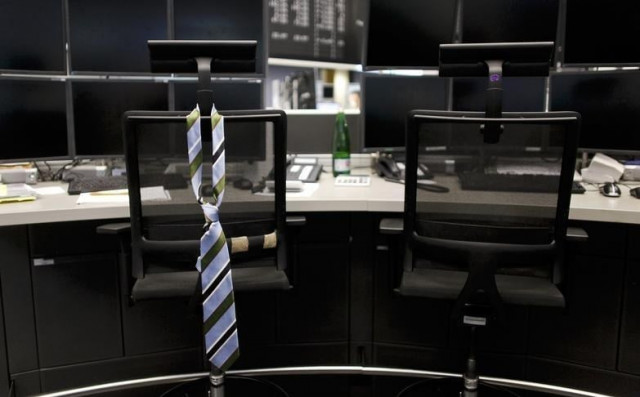Pakistanis alarmed by unemployment
Poll reveals joblessness, high cost of living more worrying than Covid-19

Rising unemployment and a high cost of living turned out to be the biggest concerns for Pakistanis compared to the coronavirus pandemic amid shattering confidence of people in the economy, a new opinion poll reveals.
People’s confidence in the economy, both in terms of its ability to absorb shocks and direction, further declined in June compared with March this year, according to an Ipsos opinion survey. Ipsos is a global market research and consulting firm that has been conducting surveys in Pakistan for its Global Consumer Confidence Index (GCCI), generally known as the National Index. The GCCI dipped to the lowest score of 22 in June in Pakistan compared with the global average of 45.1 for the month and average of 42.5 for Middle Eastern and North African countries.
The survey findings revealed that consumers had very low confidence and were reluctant to make investment decisions. They were also not very optimistic about future of the economy and jobs. The fear of losing jobs has grown compared with the survey three months ago.
People were questioned about their confidence in the economy, their opinion about the current situation compared to a year earlier, investment decisions and job prospects and the most worrying issues for them. The survey was conducted in June. An overwhelming majority of the respondents - 86% to be precise - said unemployment was the biggest concern for them - a level that was worse than March results. For one out of every three persons, unemployment was the most worrying issue.
Increasing inflation was the second biggest concern for 83% of the respondents, according to the survey. The coronavirus, which had crippled global and Pakistan’s economy, was third in the list as 78% of the respondents said the virus was one of the worrying issues.
The spread of coronavirus in Pakistan has slowed down in recent days and a significant majority of the affected people has recovered from the disease.
About 69% of respondents said poverty was one of the key concerns for them while a lack of healthcare and educational facilities was the fifth biggest concern for the people.
In what would be a rude shock to the government that believes everything is right on the economic front, only 3% of respondents said the economy was strong - a ratio that was 5% three months ago.
About half of the respondents - 49% to be precise - said the economy was very weak while three months ago 38% had believed that the economic situation was weak.
For the remaining 48% of respondents, the economy was neither strong nor weak, according to Ipsos.
Only 15% of respondents believe that the economy was heading towards the right direction - a ratio that was 21% in March this year.
For 85% of respondents, the economy was heading in the wrong direction while in March 79% believed that the economy was headed south. Pakistan’s economic conditions have remained fragile for the past many years and things have further deteriorated in the last two years, except for improvement in the current account deficit that too was achieved by slowing the economic growth.
Results of Ipsos research are based on primary data collected from the nationally representative sample of 1,100 people. People are not willing to make personal investment decisions over the next six months due to an overall low trust in the economy, according to the poll. On the Investment Index, the score was only 11.3, suggesting that the respondents would not invest in the near future.
Some 90% of respondents said they were less confident about making investment decisions while 100% respondents said they would not make any major purchases.
As many as 45% respondents said their current personal finance situation was weak - a ratio that was 40% three months ago. Some 59% of respondents said their current financial position was neither strong nor weak.Pakistan’s score on the Jobs Index was 38.2, compared to the global average of 46.
Published in The Express Tribune, July 28th, 2020.
Like Business on Facebook, follow @TribuneBiz on Twitter to stay informed and join in the conversation.





1733130350-0/Untitled-design-(76)1733130350-0-208x130.webp)











COMMENTS
Comments are moderated and generally will be posted if they are on-topic and not abusive.
For more information, please see our Comments FAQ